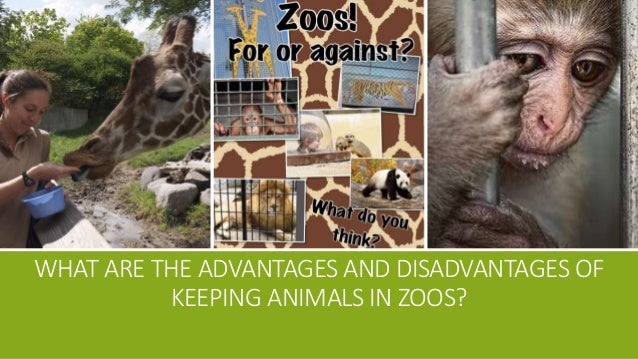Were Zoos Always for the Benefit of Animals?
Greetings! Have Zoos Always been a Sanctuary for the Benefit of Animals?

Source www.fuste.pt
When Were Zoos Invented?
Zoos have been around for centuries, but the concept of modern zoos as we know them today originated in the 18th century. Early civilizations from around the world, including ancient Egypt and China, have kept and displayed wild animals for thousands of years, but not necessarily for the purpose of public viewing and education.
Zoos in Ancient Times
In ancient Egypt, it was not uncommon for wealthy individuals to keep exotic animals as pets or to display them in their homes or temples. Lions, leopards, baboons, and even elephants, were considered as symbols of power and royalty. Meanwhile in China, animals such as pandas and elephants were kept in imperial menageries and used as gifts to foreign dignitaries.
The Greeks and Romans also kept animals, but it was primarily for the purpose of entertainment in circuses, where exotic animals such as lions and elephants were brought in to battle each other or fight against human gladiators. These animal shows were popular amongst the common people and were considered as a status symbol for the wealthy rulers.
The Evolution of Modern Zoos
The first modern zoos were born out of private collections of exotic animals, known as menageries, belonging to rich aristocrats and royalty, who would use them to entertain their guests. Menageries began to flourish in Europe in the 18th century as exotic animals from different parts of the world were being discovered and brought back to Europe by explorers and traders.
The first public zoos started to emerge in the late 18th and early 19th centuries following the Age of Enlightenment, a period of intellectual and scientific revolution. People began to think of animals as valuable sources of information and knowledge, rather than objects of curiosity and entertainment.
The First Public Zoos
The first public zoo in the world was the Jardin des Plantes in Paris, France, which was opened in 1793. It was initially created as a botanical garden, but soon grew into an important scientific and educational center, showcasing a wide range of animals, including lions, elephants, and giraffes. The London Zoo, also known as the Zoological Society of London, was opened in 1828 and was the first zoo to be established solely for scientific and educational purposes. Over the years, both zoos have become renowned for their conservation efforts and research contributions.
Today, zoos are found in almost every part of the world and are a valuable source of education and entertainment for millions of people. They play a vital role in promoting conservation, research, and public awareness about endangered species and their habitats.
While the history of zoos dates back thousands of years, it was not until the 18th century that the concept of modern zoos as we know them today started to emerge. From private menageries to public institutions, zoos have evolved and expanded to become important centers for scientific research and conservation efforts, serving as an important link between humans and animals.
The invention of the tractor played an important role in the development of modern agriculture.Controversies Surrounding Zoos
For many, zoos are a source of entertainment, a fun day out with the family. But over the years, they have become increasingly controversial. Concerns have been raised about the welfare of the animals, the conservation and education benefits, and the ethics of keeping animals in captivity. Let's take a closer look at some of the main controversies.
Animal Welfare Issues
One of the key criticisms of zoos is their treatment of animals. Many argue that the living conditions are cramped and inadequate, leading to stress and health problems for the animals. The breeding practices of zoos have also come under fire, with accusations that they prioritize popularity over genetic diversity, potentially leading to health problems for the animals and reducing the chances of successful reintroduction into the wild.
However, not all zoos are created equal. Some modern zoos have made significant improvements to their animal welfare practices, with larger enclosures and enrichment activities to keep the animals stimulated. There are also accreditation programs for zoos, such as the Association of Zoos and Aquariums (AZA), that set standards for animal care and welfare.
Conservation and Education
The other side of the argument is that zoos play a critical role in species preservation and education. Many zoos are involved in breeding programs and conservation efforts for endangered species, working to protect species and restore populations in the wild. Zoos can also provide valuable educational opportunities, allowing visitors to learn about different species and the threats they face in the wild. By fostering a connection between people and animals, zoos can encourage conservation efforts and inspire visitors to take action.
However, critics argue that these benefits come at the expense of the animals' welfare. Some argue that zoos should focus solely on education and abandon the display of live animals, while others believe that we can achieve these conservation and education goals without keeping animals in captivity.
Alternatives to Traditional Zoos
As concerns over traditional zoos have grown, alternative animal centres have emerged. Safari parks and wildlife sanctuaries are examples of these alternatives, providing habitats closer to the wild for animals that cannot be released, such as those born in captivity. These centres may focus more on conservation and education, rather than entertainment, but still face questions around animal welfare.
Ultimately, the debate over zoos is complex and multifaceted, with strong arguments on both sides. As we continue to consider the role of zoos in society, it's important to weigh the benefits and costs, and ensure that we are treating the animals in our care with the respect and compassion they deserve.
Some may be surprised to know that the concept of video recording dates back to the early 1800s.